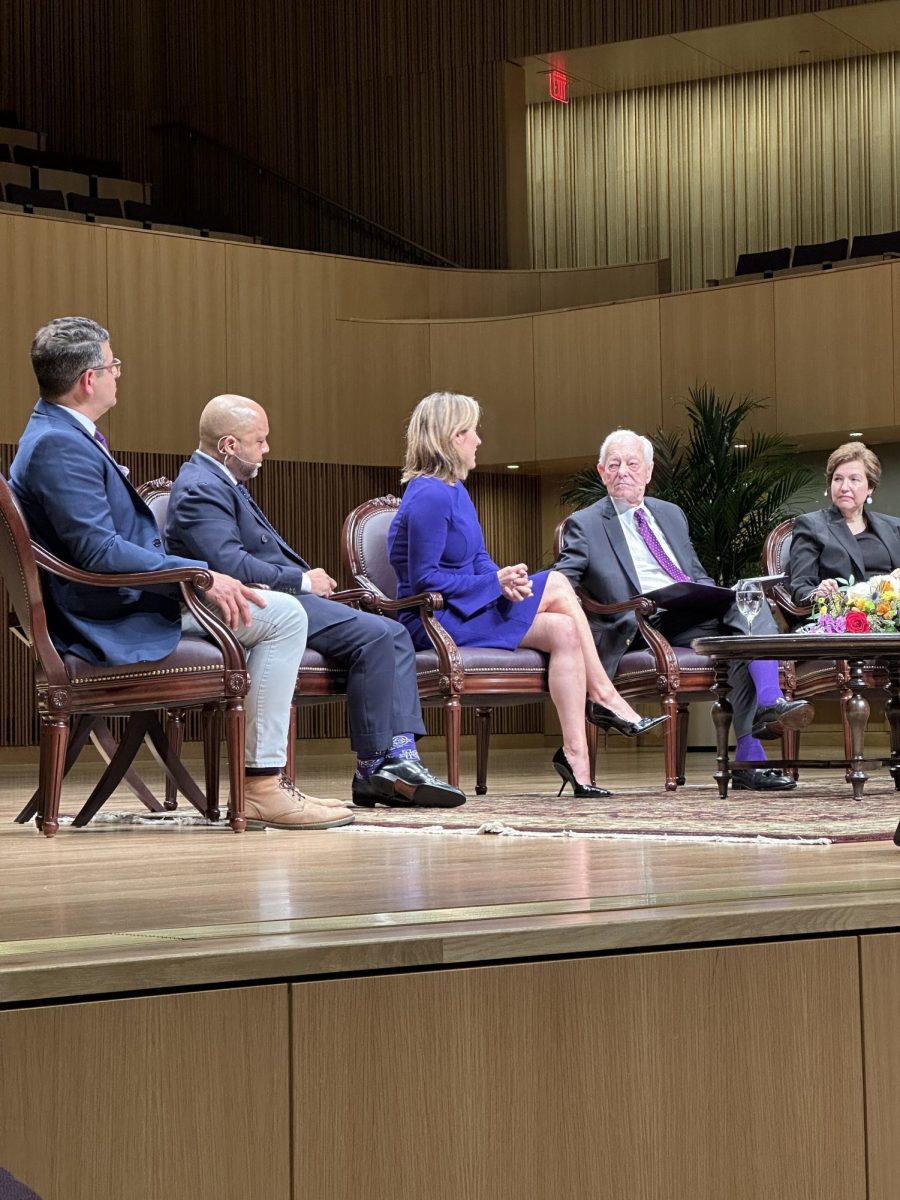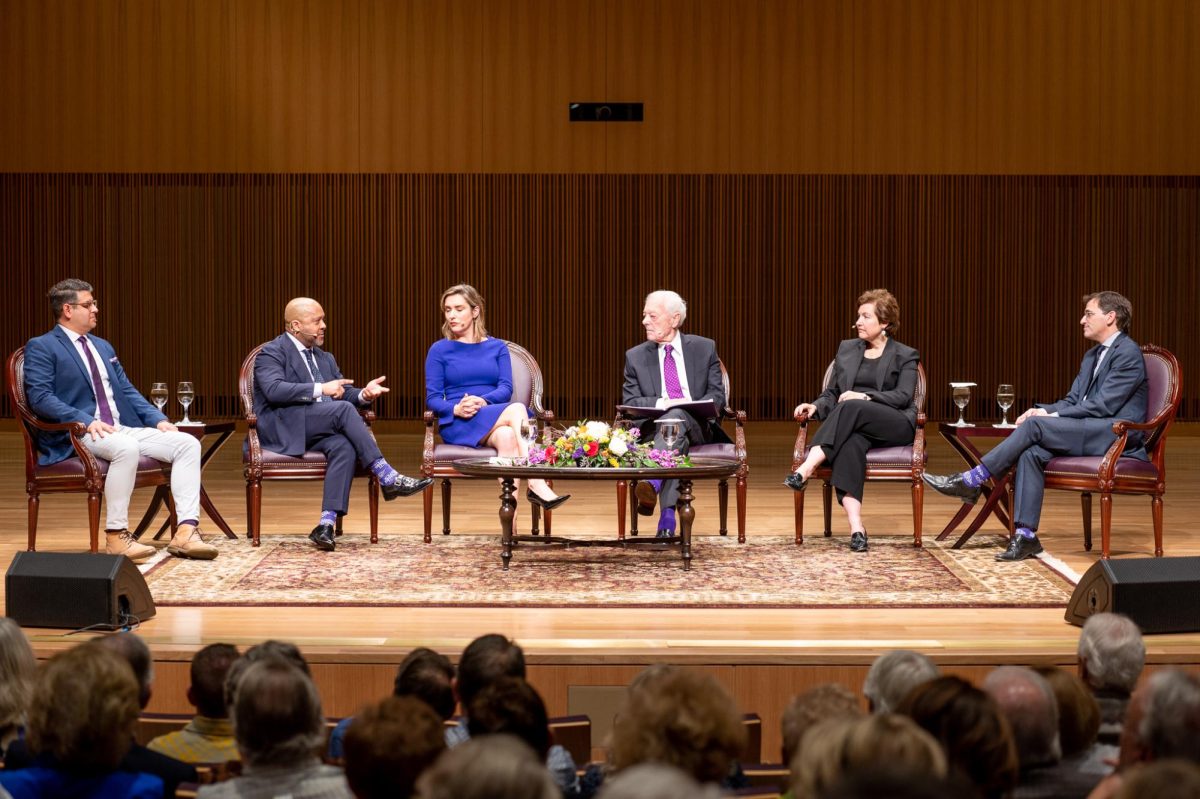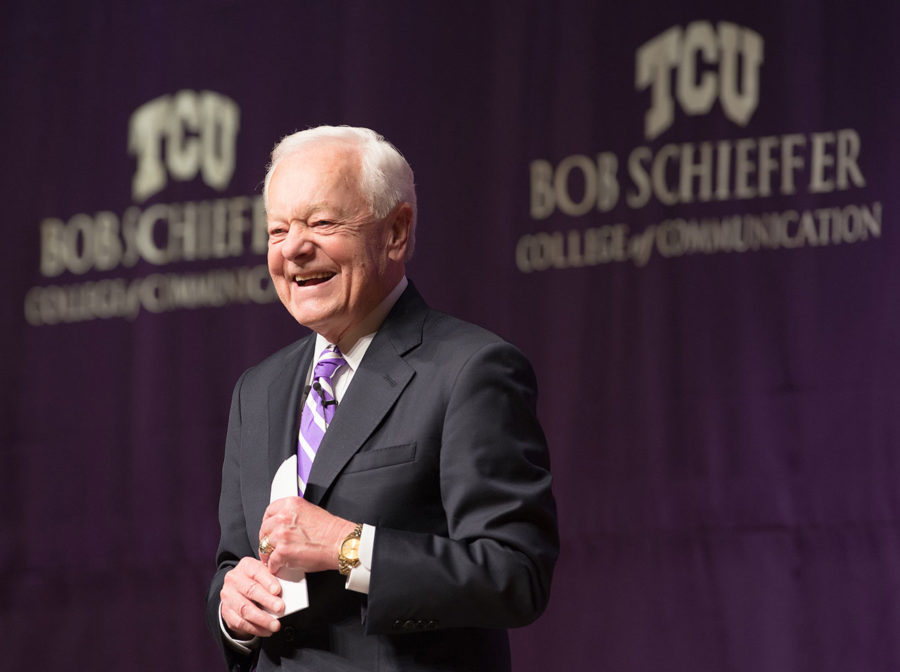A panel of female sports journalists provided insight into the business of the sports industry at the Schieffer School of Journalism’s symposium called “The Emerging Role of Women in Sports Journalism” on Tuesday night.
The event featured a number of women in the industry, including Jane McManus of ESPN New York, Michelle Steele of ESPN Digital, Jena Janovy, member of the ESPN editorial board, Lori Higginbotham, multimedia producer,and Jemele Hill of ESPN.com, Around The Horn and First Take.
“To be a woman in this business, I feel like you really have to turn off some of the socialization,” said McManus, a 15-year veteran covering New York sports. “If you are completely aware that you are the ‘odd man out’ in a given situation, that’s going to work against you. You have to think of yourself as a reporter, not as the woman reporter.”
Hill, who said she recently dealt with hate mail on a regular basis, talked about being prepared for people who are simply prejudiced against women in sports journalism.
“You have to be prepared for the scrutiny, as well as the reaction, of being a black, female journalist,” she said about her own personal experiences. “That alone is going to make you stand out. You have to be prepared for a different level of scrutiny sometimes.”
McManus agreed with those sentiments, saying that, as female journalists, they have to deal with scrutiny, and even hate, for their job.
“Your job is not to be liked,” she said. “As a matter of fact, sometimes, they may hate you. And that means you’re doing a good job, believe it or not. You have to ask the tough questions – that’s why you’re there. Don’t be afraid to do it.”
Janovy, who oversees the enterprise and investigations unit of ESPN.com, spoke about being a journalist in a modern, fast-paced digital age.
“Inevitably, it is always better to be right than to be first,” she said. “So, whatever it takes to get it right – that’s what you got to do. You can be first, and if you’re wrong, people will remember that for the rest of your career.”
Steele, who previously worked with Bloomberg Television before going to ESPN Digital, used her experience in business to speak about the opportunities that could arise in the industry.
“Find a niche,” Steele said. “Sports and television are two intensely competitive industries. And, if you can do something that will differentiate yourself outside of being a big sports fan, or a big sports nut, it’s going to benefit you immeasurably.”
Lori Higginbotham was the lone producer on the panel, currently handling online content on ESPN’s new iPad app. As multimedia producer for ESPN The Magazine after only two years with the company, she stressed the importance of perseverance and hard work in the field.
“[Women] are in a generation where they’re not going out into the world as female journalists; they’re going out into the world as journalists,” she said. “And you have to be good at what you do. There’s no magical gender or race or talent that’s going to make you good at this industry. It’s all you. It’s how hard you work.”
The symposium was jointly created by Joslyn Dalton, ESPN’s digital media strategy project manager, and Schieffer School Director John Lumpkin. At its conclusion, both credited the other for a great success.
“I’m just excited that this could be one of the more robust ways that we could impact the Schieffer School, by bringing a talented group of diverse women,” Dalton said afterward. “And so we just thought it would be an efficient way to impact this program, by having this panel.”
Director Lumpkin also said a beneficial take-away from the event would be that, in the coming years, women in sports journalism would not need special symposiums to highlight a perceived exception to the majority rule.
“Now, obviously, they shared with us some of the challenges they had, breaking into what was an all-male domain, for all practical purposes,” he said. “So, I hope, if there is an outcome here, it’s if our students saw that, to be great journalists in sports, it’s not gender-specific.”





